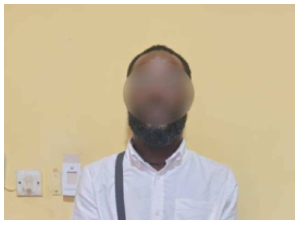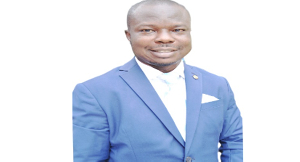A GNA Feature by Benjamin Mensah
Accra, Feb. 10, GNA - Big Brother HIV/AIDS is very wicked. It has no mercy for anybody, even little helpless children. Adults moan, children cry, but the ubiquitous wailing would not discourage Master HIV/AIDS to relent on its mass and pre-mature killing.
The disease kills, without mercy mothers too, make little children helpless orphans. "Mama, Papa, where are you?" the distressed children call their non-existent parents.
"Will Mummy come back today, the orphaned kids cry and ask? Baby Kobina is just a kid. But he remembers vividly the cuddles of Mama, the coos of Dada, and the warm atmosphere in which they cared for him till one day Mama fell sick and was sent to the hospital.
Mama had vomited frequently, held her tummy in great pain, and visited the washroom often. Baby Kobina knew something was not well with Mama. He often looked into Mama's face, amidst crying, as if to ask: "Mama, how can I help you?"
But Mummy would not answer. She can't answer; she can't do it, for she is too weak. Her face, which radiated with hope and assurance, was now blue. She feebly told Kobina not cry as she was lifted into a taxi to the hospital.
That was the last time little Kobina saw Mama. Mummy is dead. Papa has died earlier. Poor Kobina, he is now an orphan.
The love, as well as the condition of her mother when he last saw his her was etched on his mind. Kobina becomes moody and gloomy whenever he sees a mother cuddling and caressing a baby or toddler.
Kobina's case is not isolated. Already, HIV/AIDS has orphaned an estimated 170,000 Ghanaian children; and 173,098 have been identified to be vulnerable to being infected with the disease, a recent report on nationwide study on the status of AIDS orphans and vulnerable children in Ghana has revealed.
The Ashanti, Eastern, Greater Accra and the Volta Regions have the largest concentration of 77.1 per cent of the documented orphans and vulnerable children with the Northern, Western, Upper East and Upper West Regions accounting for 22.9 per cent.
The study, sponsored by the United Nations Development Programme and the Ghana AIDS Commission is to assist government to formulate a national policy on children affected by the epidemic and pave the way for the designing of programmes and their implementation based on reality and the actual concerns of the affected children.
Mr Clement Ahiadeke, Senior Research Officer at the Institute of Statistical and Economic Research (ISSER), who presented the report at an information dissemination workshop, said the study defined an AIDS orphan as a child under 18 years who has lost either one or both parents, and a vulnerable child as a child below 18 years, who has been abandoned, orphaned or exposed to extreme physical or moral danger. The study discovered that HIV/AIDS was more prevalent in the mining areas and towns along the country's borders.
The survey established that due to stigmatisation and discrimination, most of the AIDS victims from the cities and urban centres migrated to the rural areas where they lived till they died. This sad situation does not mean all is lost. There is hope. "Even before you were formed, I knew you," so says the Bible. So God knows the needs of AIDS orphans, and he provides and will ever provide in a large way.
The cuddling hands of papa or mama, or both are gone, but the bigger hands of God Almighty are ready to hug the unfortunate children.
"Even if my mother and father will leave, the LORD will take me up, said the Psalmist King David at Psalm 27:10. These are firm words and true.
Granted, AIDS, to a large extent is a disease of choice, but the unfortunate children never chose to be victims and suffer the consequences f their forebears. The children have been made victims of circumstances.
But, what are the Christian groups doing to give practical meaning to those reassuring words?
The Apostle James wrote in his book, Chapter 1, the verse 27: "Pure religion and undefiled before God the Father is this, to visit the fatherless and widows in their affliction, and to keep oneself unspotted from the world."
Would it not be nice for religious bodies to build the capacity, and give care, and counsel to AIDS orphans?
The ISSER called for foster parenthood, capacity building for caregivers, and sustainable livelihood strategy for caregivers, support to district health units and community supervisory groups.
Mr Alfred Salia Fawundu, UN Resident Coordinator and UNDP Resident Representative, who also spoke at the workshop pointed out that all the development goals, as eradication of poverty, universal primary education or reduction of child mortality by the 2015, would cut no ice if the issue of problems of AIDS orphans and the vulnerable were not tackled.
The government should formulate appropriate policy and guidelines on how to provide care and support for children and their caregivers. Development assistance should target women as well as children when intensifying efforts in fighting against HIV/AIDS and poverty. Traditional structures to meet demands in governance as well as other innovative ways such as community sensitisation, empowerment, mobilisation and integration should also be emphasised.
Opinions of Tuesday, 10 February 2004
Columnist: GNA














